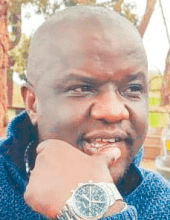Mulli loses bus depots case
The High Court in Blantyre on Friday discharged permission for judicial review granted to National Bus Service Limited which has been claiming ownership of nationwide bus depots.
Justice Mandala Mambulasa condemned the company in costs of the case, but said it was at liberty to appeal to the Supreme Court.
Attorney General (AG) Thabo Chakaka-Nyirenda, who represented the Ministry of Local Government and Rural Development, said in an interview on Friday that what the order means the ministry is at liberty to manage the bus depots.
But the bus company’s lawyer Lusungu Gondwe claimed that there is an injunction from the Commercial Court which retains the depots ownership to National Bus Service.

The depots have been under the company which claimed to have bought them from State-owned Shire Bus Lines Limited following its voluntary liquidation in 2007.
The company, owned by Leston Mulli, has been claiming that government gave them the depots and some land as part of the deal, but the AG’s position, as per court record, has been that there was no transfer of land.
While Chakaka-Nyirenda has been claiming there was no evidence that the depots were transferred, National Bus Services Limited, among other things, has been building its case on a memorandum of understanding (MoU) which it claimed government wanted to use when it wanted to reinvest into the State company, taking on board the claimant and other players through a public-private partnership (PPP).
But in order, Mambulasa said the company did not possess the requisite right or capacity to bring the action before the court considering that it never executed the MoU upon which it premised its application for permission to apply for judicial review.
“Accordingly, the permission to apply for judicial review dated 5th February, 2020 and the consequent stay, were erroneously granted; hence, they are hereby discharged,” the judge ordered.
National Bus Services Limited was challenging the liquidator, Bofomo Nyirenda, who at some time wanted to sell the depots but was stopped by an injunction the claimant obtained.
Lawyer Modecai Msisha has been representing the liquidator. On the other hand, Chakaka-Nyirenda has had his focus on reclaiming the depots.
Mulli, chairman of Mulli Group of Companies which bought the State bus company, is on record to have accused the AG of witch-hunting by resurrecting dead issues under which State firms were duly and legally privatised many years ago.
The bus depots government wants to reclaim are Lilongwe, Wenela in Blantyre, Kasungu and Mzimba.
On the point that the proceedings were commenced on the wrong premise, he said the bus company appeared to have presumed it had some title in the property when it has none as there is no document evidencing transfer of the said landed properties.
Chakaka-Nyirenda had earlier argued that the bus firm, when commencing proceedings before Justice Rowland Mbvundula and the Commercial Division, suppressed the fact that it had previously commenced proceedings before Justice Chifundo Kachale.
But the position of National Bus Services Limited, as was presented by a team of lawyers led by Lusungu Gondwe, was that government gave the company depots, workshops and all landed property owned by State-owned Shire Bus Lines Limited.
They argued that government did not have any right of possession of the depots and the landed properties.
The claimant also brought to the attention of the court that the MoU government had prepared when it wanted to reinvest in the company alongside other private companies, was supposed to be understood in the context.
The lawyers had argued that the claimant and the State had agreed that the landed property which was vested in Shire Bus Lines Limited and/or subsequently in the liquidator would be transferred to an asset holding company.
They said the asset holding company was to, in turn; lease the property to the National Bus Services.
But Gondwe said in an interview he needed to consult his client on the next course of action.
He said: “However, a court is a court. When it rules, we respect the ruling no matter how much we believe the ruling is erroneous.
“On whether we will appeal or not, we will have to get instructions but there is no need to panic. There is an injunction from the Commercial Court that makes our client retain the depots. Therefore, this ruling means nothing much. It is inconsequential. It is just one of those things.”





